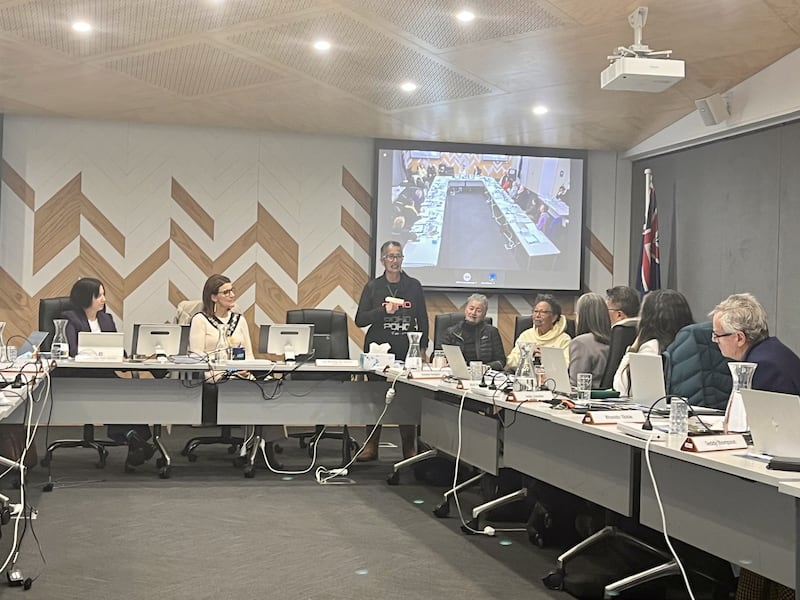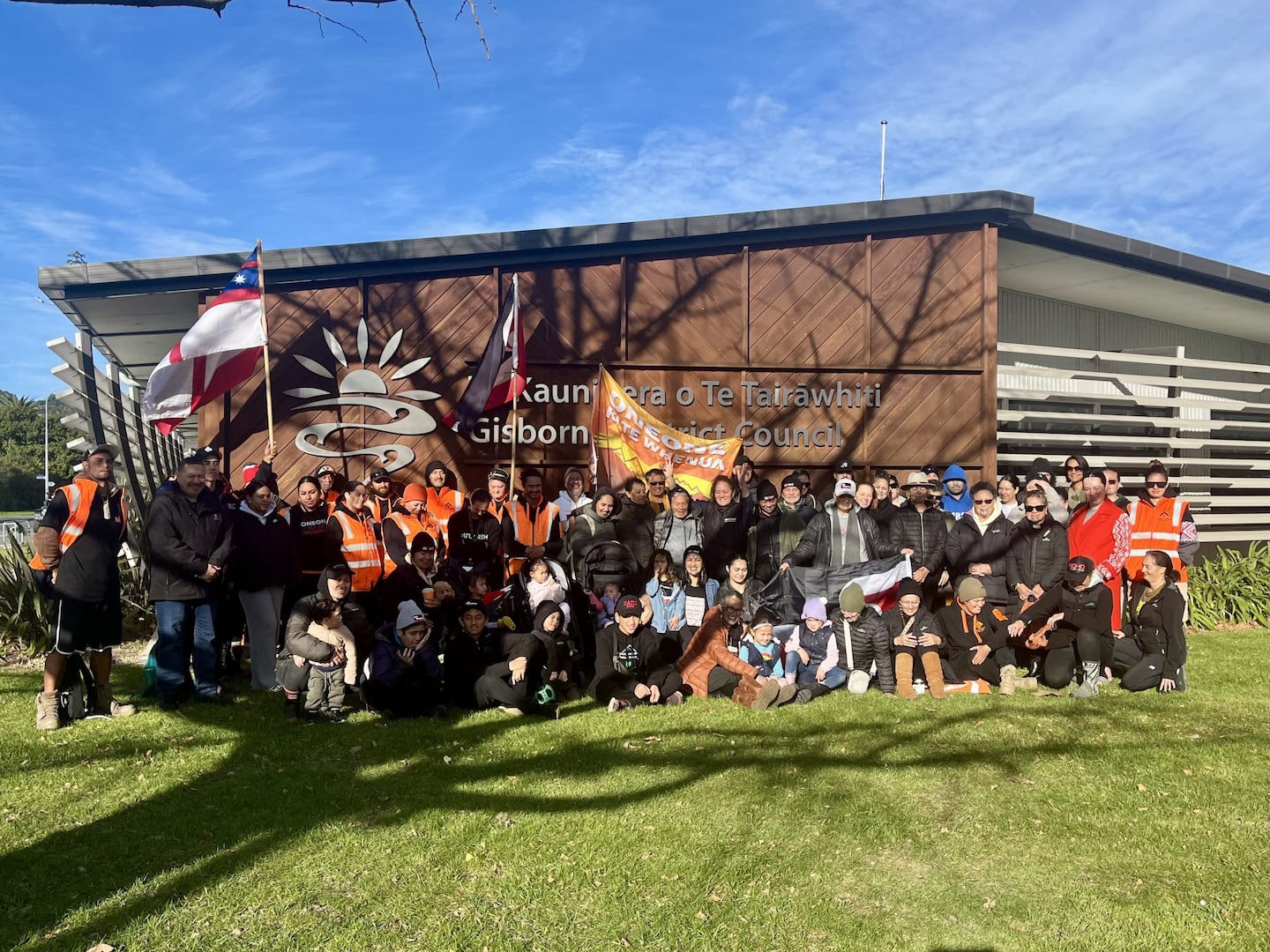Seats were scarce at Gisborne’s District Council’s packed-out chambers on Thursday morning, as councillors voted to investigate the return of ancestral land to a local hapū.
Members of Ngāti Oneone have inhabited Te Pā Eketū Shed, a warehouse-sized property on Gisborne’s Hirini St, for almost two months as part of a protest movement they have called “a reclamation of whenua”.
Their original Te Poho-o-Rāwiri Marae and Pā once stood on the land, now owned by Eastland Port, before they were removed to develop the Gisborne Harbour under the Public Works Act, almost a century ago.
Mayor Rehette Stoltz addressed the councillors and the crowd of hapū members and supporters, saying: “Ngāti Oneone are only asking for little bits of land back ... which are not used.
“But the real question and the real thank you ... is how much they have given to our community.”
The council voted to approve the development of a “statement of intent”, which would investigate the future of the council-owned land and vested land within Ngāti Oneone’s rohe.
Many in the public seats were visibly touched by the meeting’s outcome.
Stoltz acknowledged it would be “a clunky journey”, with various legislation to work through and more meetings likely.
“But I think I speak on behalf of this council when I say there is good intent from us to want to work with you.”
The council’s decision was a response to Ngāti Oneone’s online petition, which has called on the council, Trust Tairāwhiti and Eastland Port to return lands not used for core business.
More than 2500 people had signed the petition as of this morning. [Friday]
Ngāti Oneone chairwoman Charlotte Gibson told the council: “In times of disaster, you trust us with your most prized possession, which is your people,” she said, noting Ngāti Oneone’s support during Covid and severe weather events.
“Homelessness is still happening on our side of town ... We think we can do something about it. Please trust us ... We’re good at looking after people.”
Ngāti Oneone’s protest movement began on May 5.
It was 185 years to the day since Ngāti Oneone’s tīpuna, Rawiri Te Eke Tu, signed “ae ra” on Te Tiriti o Waitangi, said Gibson.
“In this day and age – it is ‘ae ra’ [meaning] – Get it, do it! Support Ngāti Oneone.”
Councillor Rawinia Parata said the council could not continue to ask things of Māori and give nothing back.
“That’s not what partnership is – [partnership] is walking hand and hand.”

Councillor Ani Pahuru-Huriwai thanked the hapū for its “graciousness in opening [its] doors” and meeting with the landowner groups under Trust Tairāwhiti, as well as councillors, and everyone who had been to the protest movement at Te Pā Eketū Shed.
“A lot can be solved by having a cup of tea and a kōrero around a fire. We should have done this a long time ago.”
She noted other councils had taken action to support returning Māori land around the country.
“This is not new, but it is a step in the right direction in terms of what Treaty partnership truly looks like and that we’re not afraid to go there.”
Deputy Mayor Josh Wharehinga said the statement was consistent with previous council decisions, noting the decision in 2021 to support the return of land taken under the Public Works Act in Tokomaru Bay.
Council chief executive Nedine Thatcher Swann said the statement of intent was a framework for how the council would proceed.
“That will be in negotiation with Ngāti Oneone around what this will look like, and what their priority areas are.
“We may be able to find some easy wins in this ... we have 265 parcels of land. Some will be reserves, some will be public works.
“[It’s] going to be difficult to navigate, but I am sure we will work in a partnership way.”
In its petition, Ngāti Oneone described its tribal lands as “from Pouawa in the north of Gisborne to Te Toka a Taiau, Turanganui awa, including the lands known as Kaiti/Kai Iti/Puhi Kai Iti”.
Council landholdings within this area comprise 265 individual land parcels, including Titirangi Reserve and its surrounds, according to the meeting’s report.
“The number of parcels and variety of types of land and ways it was acquired and is held mean that there can be no ‘one size fits all’ process.
“Even if parcels are grouped and prioritised, consideration of the request from Ngāti Oneone will be complex and will require significant time and resources.”
In the report, the council acknowledges that other iwi and hapū may also have interests in some of the lands and commits to engaging in a principled and inclusive manner, ensuring all rights and relationships to the whenua are considered.
The report says the statement of intent will signal the council’s intent to “explore the return or vesting of land to the rightful owner/s where there is no longer a genuine public need, or where ongoing stewardship and use would be more appropriately held by tangata whenua”.
Additionally, the council will engage in good faith with Ngāti Oneone and ensure “the process is transparent, timely, and upholds and enhances the dignity, integrity, and mana of those involved”.
The statement of intent will be presented to the council for adoption on August 14.
Local Democracy Reporting is local body journalism funded by RNZ and NZ On Air



